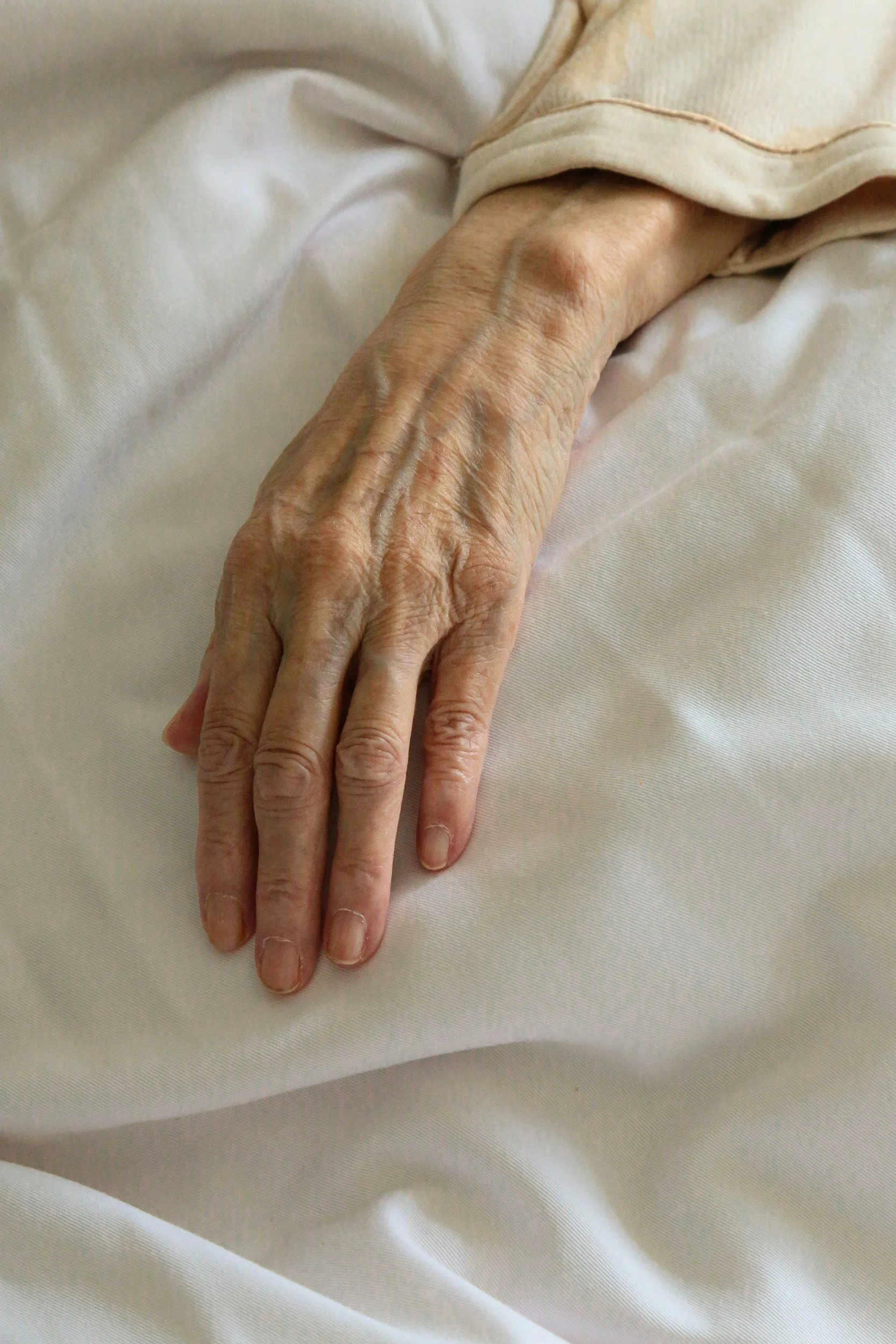Help Now, Grieve Later
I cut potatoes for my visit to Sunnybrook hospital. I’m making potato and leek soup. It is full of minerals and fits the food restriction list for those undergoing chemotherapy. I hope he likes it. I hope it brings nourishment and love.
My step-father is there. He was diagnosed with double-hit lymphoma. A rare cancer that spreads like wild fire through the body. For him, it was in the blood, bone marrow, and spleen. He tries his best to be chipper. I try my best to honor that, but hospital visits bring more grief than healing.
My step-father is annoyed with his roommate and happy to receive visitors. He has propped himself up to see me. His legs drape over the side of the bed, and his back faces the doorway. I see him, but he cannot see me, yet. The ties of the blue and white hospital gown have loosened, and I can see his exposed skin. It has a translucent quality.
The gown parts like a teepee, tight at the top, and becomes wider at the base, exposing the elastic waistband of his white undergarment. Even that looks baggy against his boney frame.
I step into the room, and a million details of the hospital rush into my mind and body. The smells of bleach and vomit, the sounds of heart monitors and coughing, the sight of faded yellow walls, caution signs, and the translucence of his skin. I absorb each piece and pocket it away to be addressed later.
There is no time to deal with my experience when I am the caregiver. Supporting others means leaving myself behind. Sometimes I get caught in this trap of avoiding my own grief and sadness by focusing entirely on helping those in need.
Dad is expecting me, and I don’t want my fear or assessment of the deterioration of his sickly body to be over pronounced. I master a perfectly crafted smile; help now, grieve later.
His mouth is filled with sores from the chemo. It hurts to talk. It hurts to breathe. He slathers on a cream that numbs his mouth. It also takes away the taste of food. The pleasure of food was such a big part of his life. In fact, my step father won over my teenaged heart with his well-cooked steak and perfectly baked fries.
My teenaged heart was scorn from the uncompassionate way my parents divorced. Filled with rage and victimhood, I aimed much of my hurt toward him. He was the perfect scapegoat. It wasn’t long before he warmed my heart with his kindness, patience, and love for food. He was a father in that and many ways.
I warmed up his soup in the hospital microwave. Two functions on the microwave, cold and scolding hot. The Ziploc container holding his soup molded into my hands, melting from the extreme heat of the microwave. Fuck, this is hot and now there is probably plastic in the soup, I thought to myself, But what does it matter when he is dying from poisonous drugs anyway. A harsh opinion for an even harsher experience.
His mouth was successfully numbed so I set the soup out for him. “Get it while it’s hot.” Even if it is too hot, it won’t likely burn. Cancer drugs cause mouths to go raw and cankerous. The feeling has been compared to razorblades slashing the inner cheeks and gums, topped off with a searing hot beverage poured onto the roof the mouth. With a welcome like that, the soup should go down pretty easy.
After a few mouthfuls, he gives up. Too much effort needed to feed himself and his mouth hurts. I gleefully tease him and offer to help. Taking the role of mother for my step-father, I trick him into eating his soup and filling his belly with a promise for a funny story after it is complete. Take his mind off the pain and create some pleasure through laughter. Though, in this state, sometimes laughter hurts as well.
When the soup is finished, and I leave to clean the dish, a nurse proudly comments, “You sure have a way with him.” “Fathers and daughters,” I shrug in response. I am proud, but I don’t show it. As a caregiver, getting someone to nourish themselves is a big win. My duty is complete. I can sleep tonight.
With this win, the grief lessens slightly, ever so slightly.
-Jennifer Ross
Jennifer Ross is a mother, writer, and communicator. She has always identified as a mother; long before she had her own children, she nurtured and took care of those around her. She instinctively knew what others wanted and was resourceful in fulfilling those needs. What Jennifer didn’t realize was that all of her energy was spent helping others, and she had precious little left for herself. Today she writes as a way to express and give a voice to all those experiences she put away in order to help others. Jennifer is a poet and author, and absolutely loves those who can bring humor to everyday experiences.





















